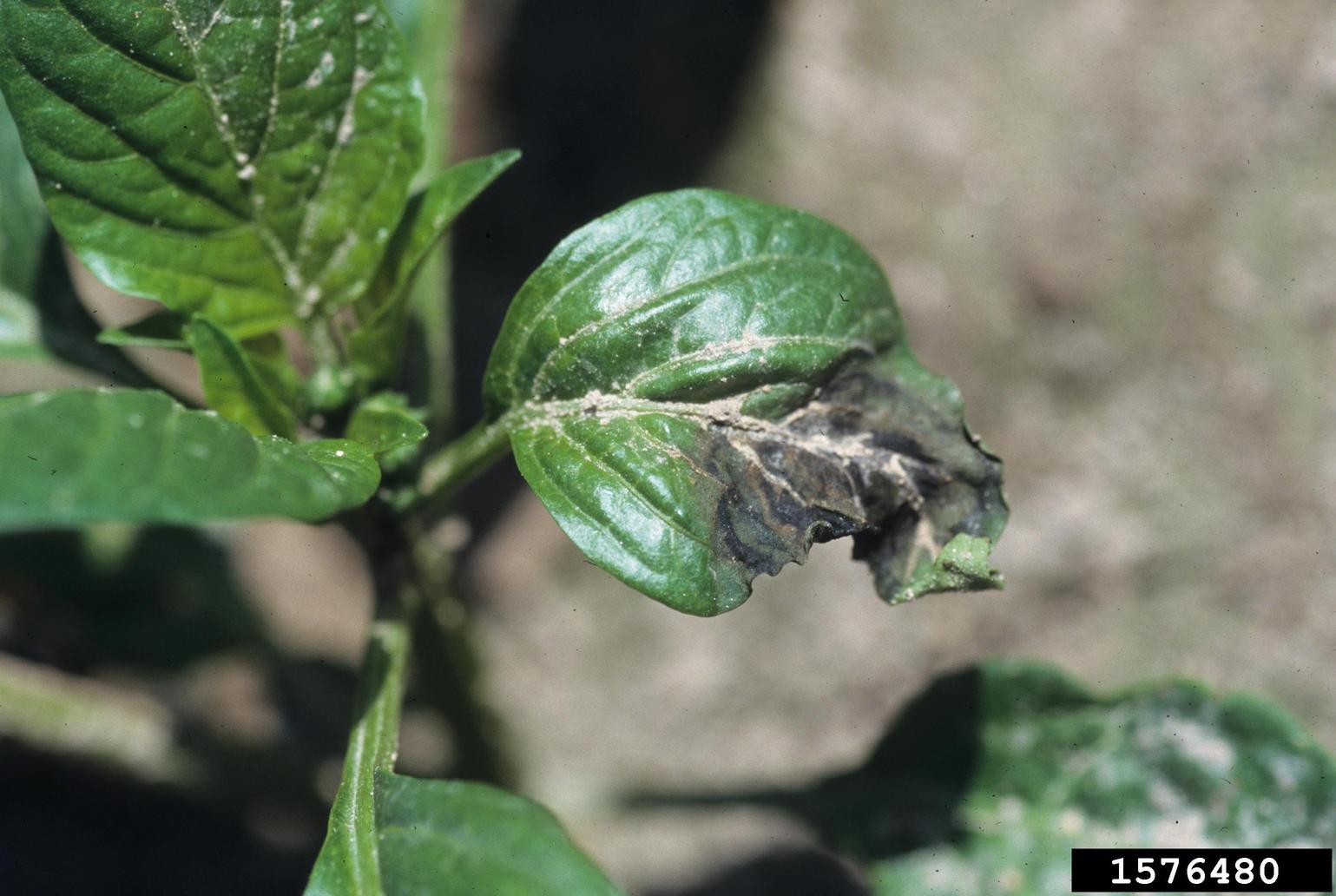
Sign up for the Gardening Know How newsletter today and receive a free copy of our e-book "How to Grow Delicious Tomatoes".
You are now subscribed
Your newsletter sign-up was successful
I've never had much luck growing pepper plants, in part because of our short growing season and lack of sun. The pepper leaves end up turning black and dropping. I'm trying yet again this year, so it's a good idea to investigate why I end up with black colored pepper plant leaves and how to avoid them.
Why Do Pepper Leaves Blacken and Fall Off?
Blackened leaves on pepper plants aren't a good omen and are usually a symptom of one or a combination of several factors. The first one, overwatering, is most likely the reason for the blackened leaves on my pepper plants. I try very hard not to wet the foliage, but since I live in the Pacific Northwest, Mother Nature isn't always as cooperative; we get a lot of rain. Cercospora leaf spot - The result of the abundance of water we receive is a fungal disease called cercospora leaf spot. Cercospora appears as spots on the foliage composed of dark brown borders with a light gray center. When cercospora is rabid, the leaves will drop. Unfortunately, the disease overwinters nicely in infected seed and garden detritus. A preventative measure for cercospora is to practice good garden “housekeeping” and remove any dead plant material. Burn decaying plants and leaves or discard them, but do not put in the compost where it will infect the entire pile. Also, practice crop rotation. If cercospora leaf spot is afflicting container grown peppers, separate infected plants from their healthy brethren. Then, remove any dropped leaves from the pot and apply a fungicide, following the dosage instructions. Bacterial spot - Bacterial spot is another origin that will cause leaves to blacken and drop. Again, the weather facilitates the growth of bacterial spot, which appears as uneven shaped purplish blotches with black centers. It affects both fruit and foliage. The peppers have a corky feeling with raised, brown splotches and the leaves become jagged before finally dropping from the plant. Rotation and removal of infected debris from around the plant is important, as this disease will overwinter as well. It will also spread easily from plant to plant with splashing water. Powdery mildew - Powdery mildew may also infect the plant, leaving a black, fuzzy coating on the leaves. Aphid infestations also leave their excretions behind on foliage, coating it and fruit with black gunk. To combat powdery mildew, spray with sulfur and to kill off aphids, spray with an insecticidal soap.
Other Reasons for Pepper Leaves Turning Black
Besides overwatering or disease, pepper plants may blacken and lose leaves because of underwatering, or too much or too strong of a fertilizer. Be sure to rotate crops annually, refrain from wetting the foliage, and don't compost end of season plants. Quarantine any infected plants immediately and either discard or apply a fungicide at the first sign of trouble. Lastly, an almost laughable reason for black pepper leaves is that you purchased them. That is, it is possible that you have planted a pepper cultivar called Black Pearl, which has naturally dark leaves. Blackened leaves that drop from peppers are preventable and peppers are well worth the effort. So, here I go again, forewarned and armed with information.
Sign up for the Gardening Know How newsletter today and receive a free copy of our e-book "How to Grow Delicious Tomatoes".

Amy Grant has been gardening for 30 years and writing for 15. A professional chef and caterer, Amy's area of expertise is culinary gardening.
